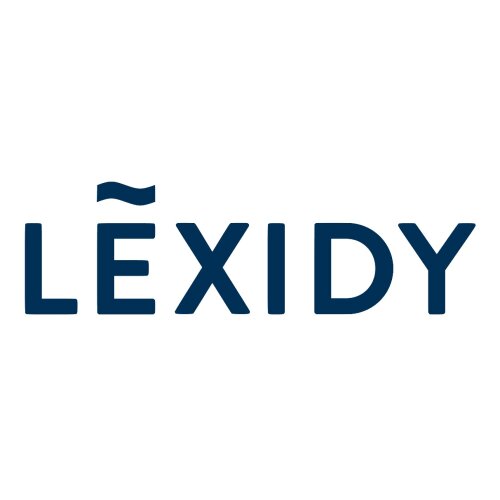Best Private Equity Lawyers in Paris
Share your needs with us, get contacted by law firms.
Free. Takes 2 min.
List of the best lawyers in Paris, France
About Private Equity Law in Paris, France
Paris is a thriving hub for Private Equity (PE) in Europe, known for its vibrant financial markets and sophisticated investment environment. Private Equity involves investing in companies (often unlisted) to fund expansion, restructurings, or for acquisition before ultimately seeking a profitable exit. In Paris, the PE landscape is shaped by a mix of national and EU regulations, active deal-making, and a network of experienced investors and legal professionals. Law firms in Paris serve local and international clients, offering guidance on complex PE transactions, fund formations, due diligence, regulatory compliance, and dispute resolution.
Why You May Need a Lawyer
Private Equity transactions can be legally complex and require specialized knowledge. A lawyer's expertise is invaluable in the following situations:
- Structuring and negotiating investments or buyouts
- Drafting and reviewing investment agreements
- Ensuring regulatory compliance with French and EU law
- Conducting due diligence on target companies
- Advising on fund formation and management structures
- Handling disputes between investors or with portfolio companies
- Managing cross-border transactions
- Dealing with tax optimization and reporting obligations
- Protecting intellectual property and other company assets during deals
Local Laws Overview
In Paris, Private Equity is governed by a range of legal frameworks, reflecting both French national laws and European Union directives. Some of the key aspects include:
- Financial Regulations: The French Financial Markets Authority (Autorité des marchés financiers or AMF) supervises private investments, requiring certain approvals and transparency in Private Equity dealings.
- Company Law: The French Commercial Code sets out rules for company formations, mergers, acquisitions, and shareholder protections that are central to PE transactions.
- Taxation: France offers specific schemes and tax treatments for investment funds and carried interest, but compliance with reporting standards is mandatory.
- Labor Law: Many transactions are influenced by French employment protections, which can impact restructuring or layoffs during buyouts.
- Competition Law: Both French and EU antitrust regulations can apply, especially when transactions involve larger businesses or multiple countries.
- Cross-Border Competence: Paris serves as a gateway for international deals, so international laws and treaties often interplay with local legislation.
Frequently Asked Questions
What is Private Equity and how does it work in Paris?
Private Equity refers to investment in private companies (not listed on a public exchange) using pooled funds from institutional or private investors. In Paris, PE firms identify value opportunities in businesses, inject capital, implement changes, then seek a profitable exit via sale or public offering.
Who regulates Private Equity activities in France?
The French Financial Markets Authority (AMF) is the main regulator for PE activities, overseeing fund registrations, investor protections, and compliance with both French and EU rules.
Can international investors participate in Private Equity in Paris?
Yes, Paris is open to both domestic and international investors. However, certain foreign investment controls and disclosure requirements may apply depending on the size or sector of the deal.
What are the main legal structures used for Private Equity funds in France?
Structures commonly used include the Société en Commandite par Actions (SCA), Fonds Professionnel de Capital Investissement (FPCI), and Société d’Investissement à Capital Variable (SICAV). Each offers different tax, regulatory, and shareholder benefits.
What due diligence is required before investing?
Due diligence covers financial, legal, tax, and operational aspects of the target company. Lawyers verify compliance, audit risks, investigate liabilities, and ensure all information is accurate prior to investment.
How are employees affected by a Private Equity transaction?
French labor laws provide significant protections. In many cases, employee representative bodies must be informed or consulted, and employment agreements or benefits may be preserved post-transaction.
What tax considerations arise in Private Equity deals in Paris?
Tax treatment depends on the fund structure, the investor's status, and the nature of the exit. France has detailed tax regimes for carried interest, capital gains, and investment income, often requiring careful planning.
Are there any restrictions on foreign ownership in Private Equity deals?
Certain sectors considered sensitive, such as defense or critical infrastructure, may face additional governmental scrutiny or approval for foreign investors.
How long does a typical Private Equity transaction take to complete?
Most deals in Paris take several months from initial negotiations through to closing, allowing time for due diligence, regulatory approvals, and drafting of legal documentation.
What happens if there is a dispute during or after a Private Equity investment?
Contracts typically specify mechanisms for resolving disputes, which may involve negotiation, mediation, or arbitration. French courts also offer specialized chambers for commercial and financial disputes.
Additional Resources
If you need more information or support regarding Private Equity in Paris, consider these resources:
- French Financial Markets Authority (Autorité des marchés financiers - AMF) for regulatory guidance
- Association Française des Investisseurs en Capital (France Invest) for industry standards and news
- Chamber of Commerce and Industry Paris Ile-de-France for business support and networking
- French Bar Association (Ordre des avocats de Paris) for legal professional listings
- Ministry of Economy and Finance for information on foreign investment controls
Next Steps
If you require legal help with a Private Equity matter in Paris, it is important to:
- Identify your specific needs, such as fund formation, deal negotiation, or regulatory advice
- Gather all relevant documents and business information before your consultation
- Contact a qualified lawyer or law firm specializing in Private Equity in Paris
- Ask about their experience with similar transactions and understanding of sector-specific issues
- Discuss fees, timelines, and dispute resolution options before committing
Legal advice in Private Equity is crucial for protecting your interests and ensuring compliance. Start by consulting reputable professionals who understand both the local and international aspects of the Parisian market.
Lawzana helps you find the best lawyers and law firms in Paris through a curated and pre-screened list of qualified legal professionals. Our platform offers rankings and detailed profiles of attorneys and law firms, allowing you to compare based on practice areas, including Private Equity, experience, and client feedback.
Each profile includes a description of the firm's areas of practice, client reviews, team members and partners, year of establishment, spoken languages, office locations, contact information, social media presence, and any published articles or resources. Most firms on our platform speak English and are experienced in both local and international legal matters.
Get a quote from top-rated law firms in Paris, France — quickly, securely, and without unnecessary hassle.
Disclaimer:
The information provided on this page is for general informational purposes only and does not constitute legal advice. While we strive to ensure the accuracy and relevance of the content, legal information may change over time, and interpretations of the law can vary. You should always consult with a qualified legal professional for advice specific to your situation.
We disclaim all liability for actions taken or not taken based on the content of this page. If you believe any information is incorrect or outdated, please contact us, and we will review and update it where appropriate.

















